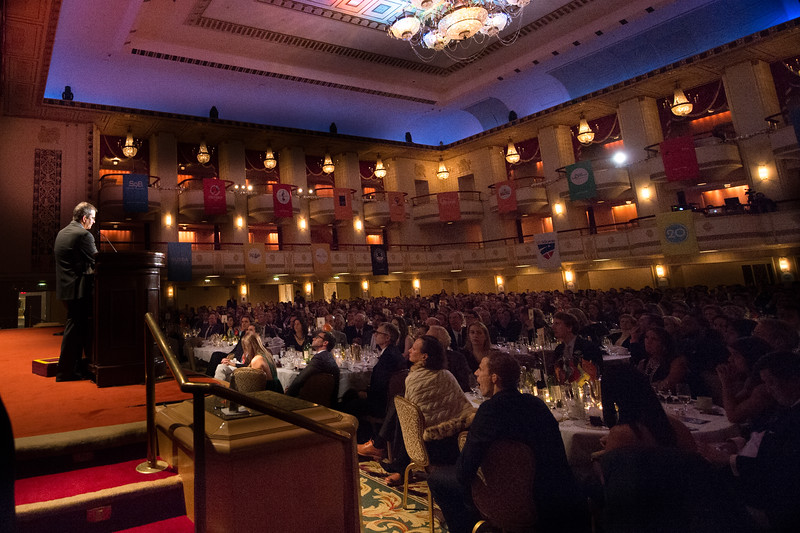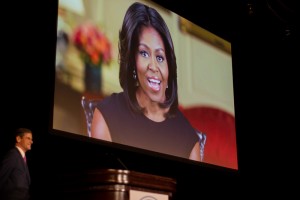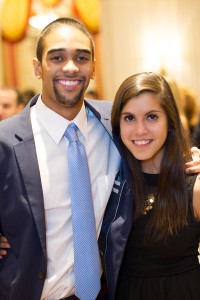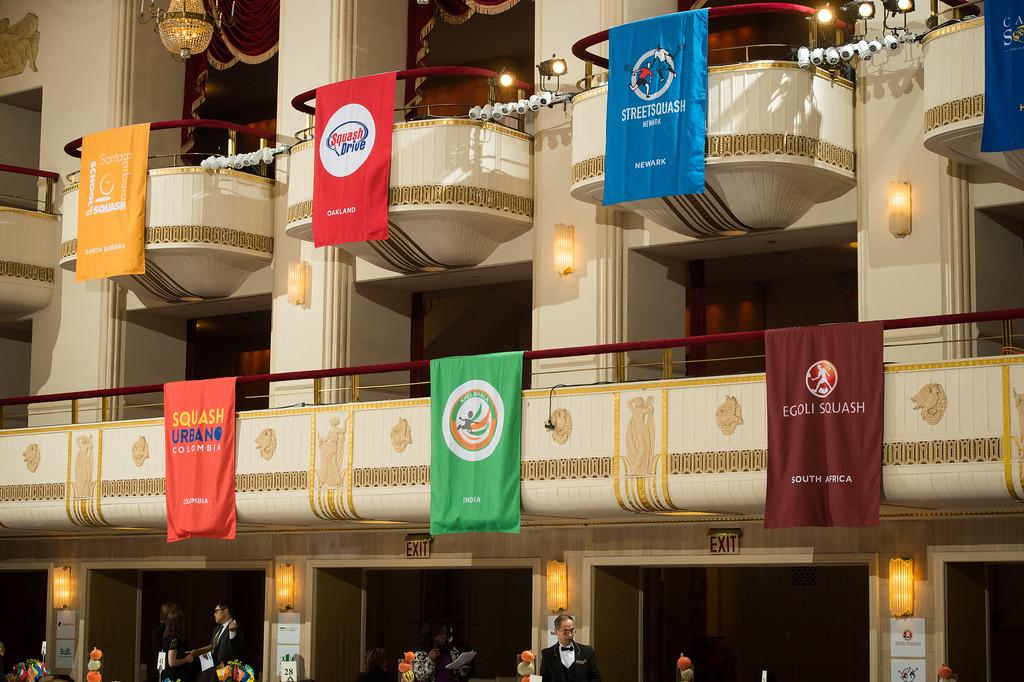
By James Zug
In January 2015 the National Urban Squash & Education Association held a gala weekend in New York.
In January 1995, the idea of an after-school youth enrichment program existed only on paper—literally, in a seven-page paper, “Bringing Squash Down from the Ivory Tower.” Greg Zaff wrote it for a Kennedy School of Government class while he was getting his masters in public policy at Harvard.
Twenty years later, urban squash encompasses twenty-three programs around the country and around the world benefitting thousands of young, underserved people. It has gone from an idea to a movement.
The core of the three-day weekend was the annual urban squash team nationals. Four hundred players from fifteen programs competed, with Squash Haven winning four draws, CitySquash three and Access Youth Academy one.
In addition, there were tours of the Museum of Modern Art and the Brooklyn Museum of Art; exciting viewing of early-round matches at the J.P. Morgan Tournament of Champions; and many formal and informal board and staff meetings.

For a full day at the University Club of New York, NUSEA hosted a leadership conference. More than 200 people attended. It was a national affair—every U.S.-based program had staff and board members present. It was also global. Satinder Bajwa, the former Harvard coach, came from India where he runs his NUSEA-affliated Khelshala program in Chandigarh; Mashumba Mukumba came from Zimbabwe where he is hoping to start a program in Harare; Clive Caldwell came down from Toronto; and Esteban Espinal and Diana Gomez Kopp, the executive director and board chair of Squash Urbano Colombia, gave a talk about how they were launching a new program in Cartagena.
Bill Simon opened the conference by announcing that NUSEA had raised over $2 million for the weekend to help fund its initiatives. He noted that the origins of the gala weekend came at an urban nationals a few years ago. “Greg Zaff pulled me aside and said, ‘This is amazing but none of our board members, our supporters are here. All the kids are here but no one else can see this, can connect to the kids.”
Zaff then spoke about the origins of urban squash. He remembered driving from Boston to a pro tournament in Manhattan and on the way coming through Harlem. “I wanted to knit together that disparity I saw in Harlem with the sport that I loved.” He launched the program in the fall of 1996, operating it out of his second bedroom in a rent-controlled apartment in Cambridge.

When asked about the goals of the program, did he imagine that urban squash would become this global phenomen, Zaff said: “No, not at all. There was nothing on my original proposal that resembles what has happened. My goal was to help a few kids in Boston in a profound way. I was definitely thinking of the film ‘Ghostbusters’ when I named it SquashBusters. I had this vision that our kids would do for their world what Dan Aykroyd and Bill Murray did to crime. It was a big adventure that first year: twenty-four kids, driving the van, this social experiment with the members of the Harvard Club of Boston. The core of the program has been the same: it is about the repetition, the constancy of the schedule—people care and respect the kids and hold them accountable day after day. Doing it well and doing it over and over again.”
Other panel speakers outlined ideas about how to select and retain students and measure success and how to fundraise for the future, including capital campaigns. One inspiring panel of urban squash alumni spoke about their experiences and ideas. The keynote speaker was Wendy Kopp. The founder of Teach for America in 1989, Kopp gave an impassioned, mostly positive survey of the current educational system in the U.S. and how programs like the urban squash movement play a critical role in providing academic rigor, character building and exposure and access for underserved children.
The highlight of the weekend was a gala dinner at the Waldorf-Astoria Hotel. Eight hundred people attended, making it perhaps the largest sit-down dinner in the history of American squash. (The centennial ball for US Squash in October 2004 had just under 600 guests.)
It was a star-studded evening. Flags from every program decorated the Waldorf’s ballroom. More than a dozen U.S. Squash Hall of Famers and a half dozen world No.1s. came, as did numerous stand-outs from earlier eras and potential future greats. It was incredibly diverse and yet warm and welcoming, as every region and every constituency was there in force. Even the beautiful aspect of squash—the intimacy of our global community—was represented by a boisterous cohort of Oxford squash players finishing up a tour of the U.S.

Laura Trevelyan, an anchor at BBC World News America, acted as master of ceremonies, ably guiding the five videos and many speakers through a busy schedule on stage. First Lady Michelle Obama sent her congratulations from the White House: speaking in a video, she said, “My husband and I are so proud of you and we’re so grateful for the outstanding work of the urban squash movement and NUSEA.”
There were two standing, sustained ovations. One came for Reyna Pacheco, an Access Youth Academy graduate. The other was for Zaff. “I wanted my life to have meaning,” he said, referring to the genesis of urban squash. “Now I feel I am the luckiest guy in the world for being able to do what I do.”
Zaff added: “I will never forget this evening.” Neither will anyone else.





